Steph W. from SEOPressor


...help you check your website and tell you exactly how to rank higher?


95
score %
SEO Score

Found us from search engine?
We rank high, you can too.
SEOPressor helps you to optimize your on-page SEO for higher & improved search ranking.
By vivian on November 15, 2016

As is often said, a beginning is a very delicate time. Some may be wondering, “What is SEO?“. Well, here’s a comprehensive guide to understanding SEO for beginners.
The decisions made early on when embarking on any new venture will have a huge impact on that venture as a whole. With well-laid foundations, it’s much more certain of success.
This is absolutely true of SEO success. The worst way a person or company could go about creating an SEO campaign is by simply beginning a blog without any planning behind it.
Good SEO campaign strategy is rooted in having very well-defined SEO metrics and targets beforehand, then crafting site content that matches those targets.
Using thought and foresight beforehand in your SEO planning will go far towards seeing a successful campaign. Let’s take a look at the 5 factors you should consider for an SEO campaign.
Hopefully, you have a marketing initiative which is well-developed enough to have a vague idea who your customers are. For good SEO campaign strategy, you need to go significantly beyond that. Moreover, like most things related to SEO, you should always attempt to look at things from a customer-focused standpoint.
Which is more or less to say, every company would like to have a whole lot of super-rich customers willing to pay almost anything for their product. However, for many companies, that’s simply not in the cards. The best customers for any given product or service are those for whom the product would realistically have the most utility or appeal.
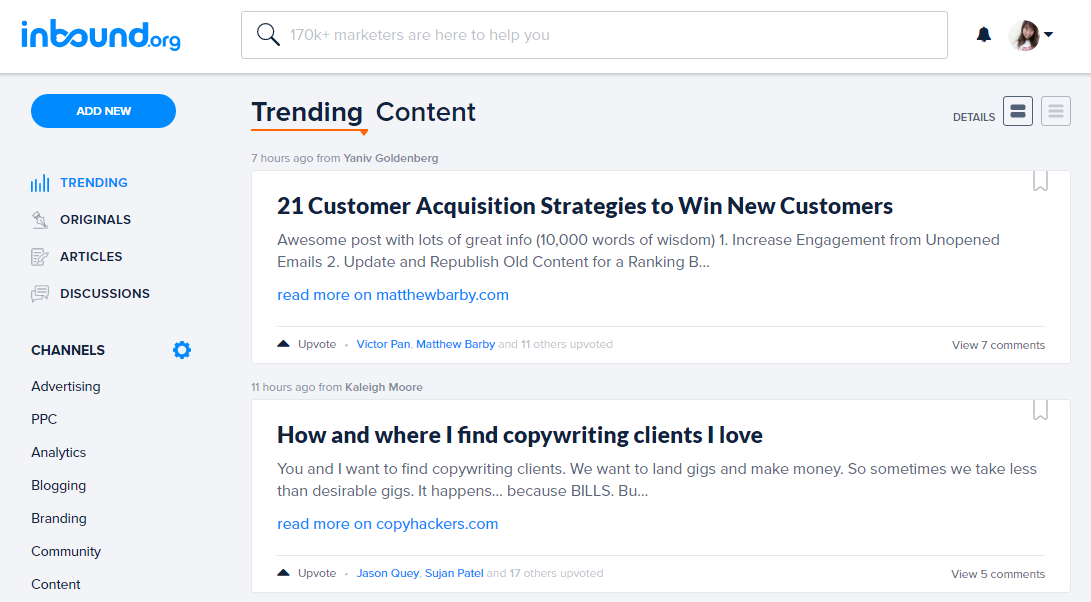
Looking at what people are commenting and posting at forums like Inbound.org can also help you to identify your target audience better.
So in a broad sense, you should have a well-defined idea of who your customers are likely to be. It’s a good idea to create a buyer persona describing those people in detail.
For SEO strategy, however, you then need to go a step beyond. It’s entirely likely that not all of your buyers are using online searches. (Although the younger they are, the more likely they are to rely heavily on searches.)
Furthermore, it’s entirely possible you have competitors who have already effectively “locked in” a certain part of your target market. Fighting for them would be difficult and costly, with uncertain returns. That’s a fight that should happen later on, if ever, and not when you’re just starting out.
Therefore, the ideal audience for a new SEO campaign would be:
Nail those down, and you’ve got a great foundation for a successful SEO campaign.
Now, we’re going to go even deeper in terms of your audience and targeting. Here, we get into a place where SEO strategy completely diverges from traditional mass-media marketing tactics.
In mass-media marketing, the point is to cast the widest net possible in hopes of catching some fish. In SEO, you are almost certain to get the best results with a small net precisely aimed at your absolute best potential leads. Trying to cast a big net in SEO is not likely to succeed and something that only the largest of brands with well-established footprints can engage in.
Why? A few reasons:
Keyword capture
At this point in the development of SEO, most of the common keywords are already captured by the biggest players in that industry.
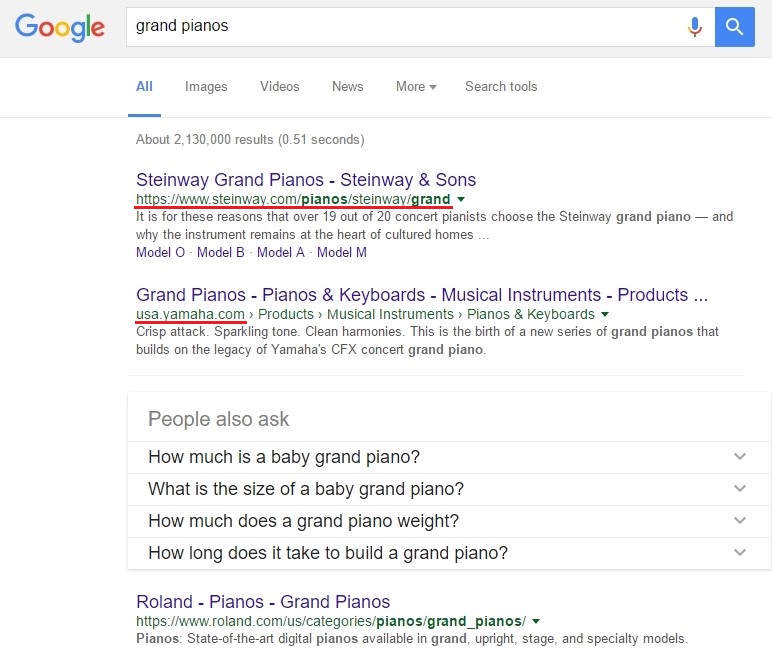
Search for “grand pianos” and you’ll get Steinway and Yamaha.
Search for “washing machines” and you’ll get Best Buy and Lowes. A small company can’t compete.
Cost
We’ll touch on this more in a minute when we talk about site traffic and other SEO metrics, but simply put: A well-run SEO campaign is a cost-effective SEO campaign. The bigger the net you cast, the less likely you are to see stable ROI from it.
Personalized results
Google increasingly uses personal/local factors in determining search results, and the more data they have on a given user, the more personalized those results become. Even if someone is searching for a very common keyword, Google is adding invisible modifiers to their search to fit them personally.
Expectations of personalization
The other side of the coin: buyers are increasingly disinterested in materials which are clearly made for the lowest common denominator. They want customized services made for them, personally, not products trying to be all things to all people. Particularly among younger (<40) buyers, mass-market techniques can be unappealing.
So, one of the best ways for a smaller company to get a foothold in SEO is to finds a niche. Take a long, hard look at your product, service, and/or company and ask, “What makes us different? What can we offer to the audience that nobody else is offering?”
This can be almost anything. It can be a particular feature of your product that’s unique. It might be that you support certain political or social movements that other brands don’t. It might even simply be that you have a lot of Harry Potter fans on-staff and your company identity tends to be more whimsical because of it.

In SEOPressor, not only we help our users to optimize their on-page SEO, we also provide Site Audit for users to manage their website links easily.
Literally, anything that makes you unique could be part of the niche you carve out. Identify the factors that make you unique, then fine-tune your buyer personas to focus on those for whom that niche would be most appealing.
You might even consider investing a gimmick, just to give yourselves a talking point. Or. if nothing else, do research on your competition and don’t try to be what they are trying to be.
For example, have you ever looked up plumbers online? Isn’t it kind of infuriating that every plumbing website in existence seems to emphasize their “dedication to great service” and their “low prices” and nothing else? It turns them into indistinguishable parity products. Don’t fall into that trap.
Now, let’s get into more practical, SEO-specific tactics. Keyword selection is going to be at the heart of your SEO campaign strategy. If you have taken the time to create a well-defined audience persona and have a strong understanding of what genuinely makes your product/service unique, you’ll have a big leg up here. You simply need to find keywords which highlight those factors.
Do your keyword research. Look for keywords with a relatively high search incidence, but relatively low levels of competition. Then add modifiers that fit your audience and niche.

You can also find out the type of queries that users are searching for based on Google autocomplete.
For example, a pet supply store wouldn’t want to target only the short-tail keyword like “dog food.” They’d want to target something more like “Organic dog food for greyhound puppies,” based on their audience research. That’s the sort of keyword, called a long-tail keyword, which is great for targeting a niche while still being part of a common search string. (You can also read more about the differences between short-tail and long-tail keywords here.)
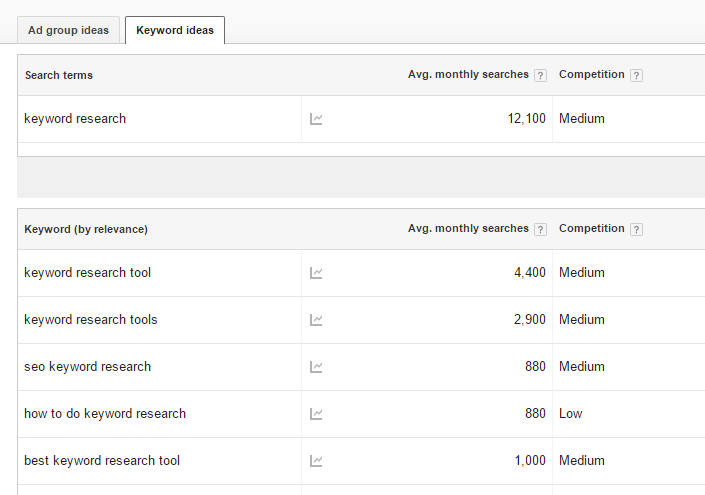
Keyword Planner by Google AdWords is a free tool that can help you to look for more keyword ideas and analyze the performance.
Keep your keyword targets reasonable too. For most companies, only a handful of keywords will be sufficient – and that makes it easier to track your SEO metrics as well.
“More” is not necessarily “better” when it comes to SEO and inbound traffic. Website traffic is one of the most commonly cited metrics for SEO, but it’s often misunderstood and over-emphasized. Ever-increasing traffic, by itself, doesn’t necessarily indicate success.
Optimal website traffic feeds you as many leads as you can reasonably handle while looking to maximize lead conversion rates.

SEOPressor Organic Traffic: It may take some time to see the effect of your SEO efforts, but the results will surely pay off.
Some factors to consider here:
Basically, pick a reasonable metric for SEO traffic, then look to increase your website traffic until you reach it and can maintain it. This gives you a baseline to aim for.
Finally, dovetailing with point four, there’s the matter of conversions.
If you’re attracting 10,000 people per month to your site, but only getting one sale, that’s a lot of wasted money and resources. Ideally, you want as many visitors as possible to convert, rather than just browsing and driving up your bandwidth costs.
There are many ways to increase SEO conversion rates, which we’ve discussed in-depth. This is what determines the overall success of your SEO campaign, as well as being the most important SEO metric to follow when evaluating its progress.
Broadly, the single best strategy for increasing organic conversions is through better use of effective landing pages with specific offers.
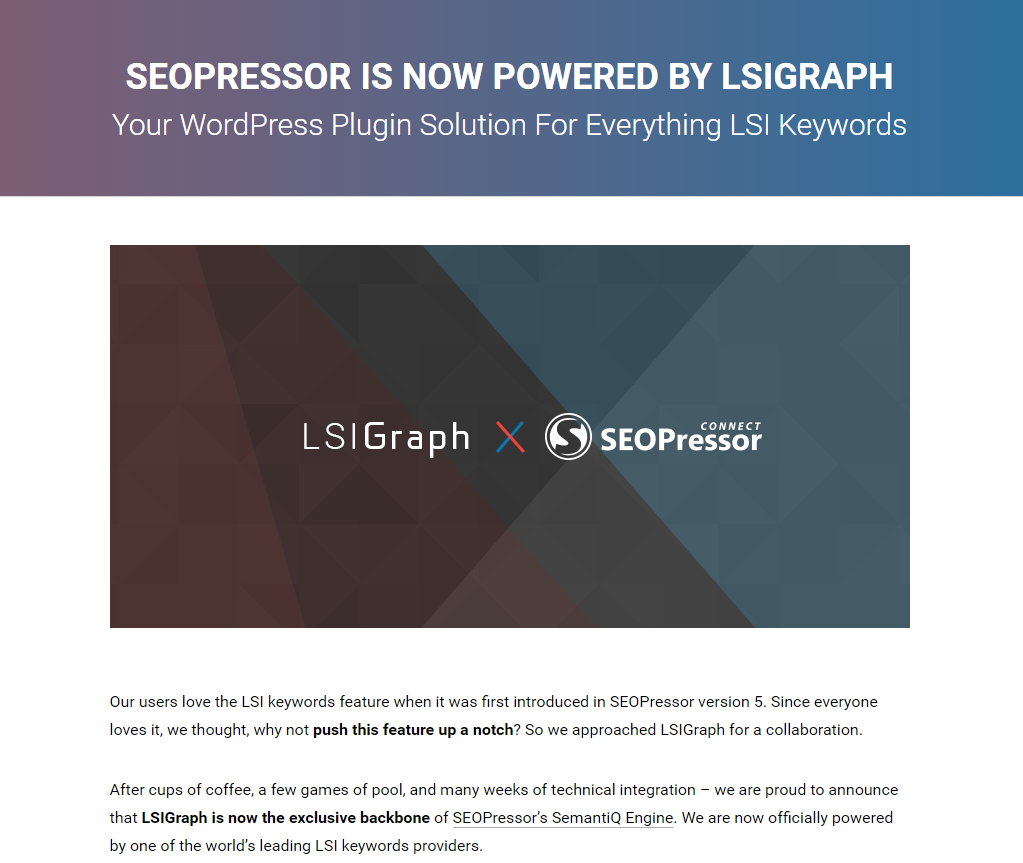
A well-crafted landing page that provides beneficial information to the readers is the key to increase your conversion rate.
Creating plenty of landing pages, then tracking their performance, will be another key SEO metric that points you towards success.
While there’s no such thing as a 1:1 conversion rate, the closer you can push it towards 1:1, the better. Try to set goals for steady improvement here, looking to constantly increase the baseline rather than holding it steady.
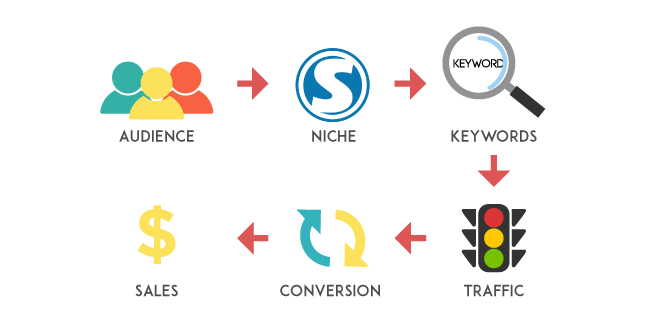
Keep this in mind: To have a successful SEO campaign, always remember this 5 key points.
So where does this leave people just beginning to plan an SEO campaign? In short: Choose your targets and metrics early, do as much research as possible to fine tune those targets as precisely as possible, then track your site stats and conversion rates to measure SEO campaign performance. (Read our blog post to find out how to measure SEO performance.)
There’s no single formula which guarantees SEO success, but doing this will put you on much more solid footing than a lot of your competition. You can also check your SEO score on Website SEO Checker.

Website SEO Checker calculates your website’s SEO score for free.
Are there any other factors that you’d usually consider for an SEO campaign? Share with us by leaving a comment down below!
Updated: 20 February 2026


Save thousands of dollars (it’s 100x cheaper)

Zero risk of Google penalty (it’s Google-approved)

Boost your rankings (proven by case studies)
Rank High With This Link Strategy
Precise, Simplified, Fast Internal Linking.
